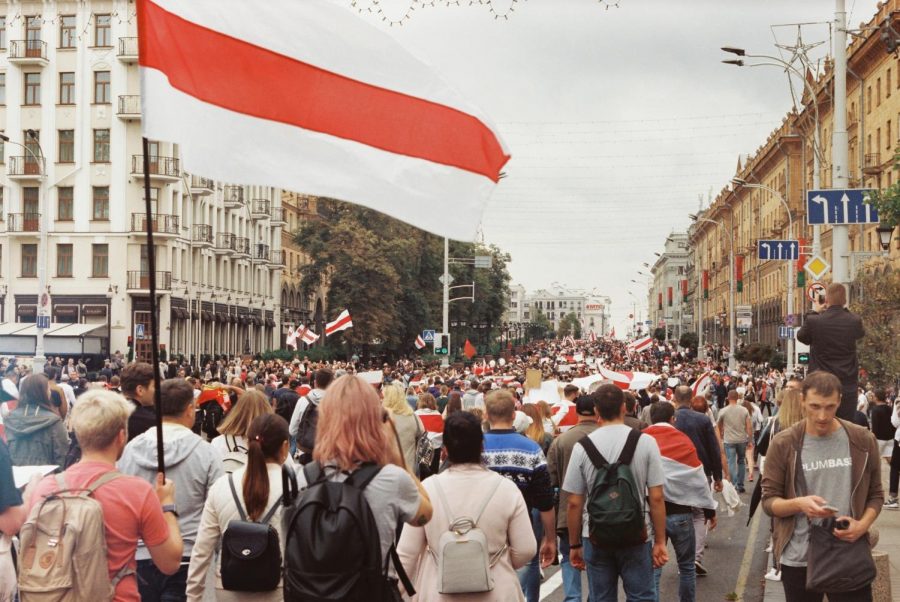Update on the State of Belarus
September 26, 2020
Since August, civilian protests have been steadily growing in Belarus against the Belarusian President, Alexander Lukashenko. Lukashenko has been in power for 26 years and was elected into his sixth term as President in a landslide election from August. However, there are suspicions, which prompted the protests, relating to fraud on account of Lukashenko’s low approval ratings in polls not conducted by the state. These protests, beginning in the Belarusian capital, Minsk, have since spread to all of the major cities in Belarus. In recent weeks, new domestic and international developments have arisen from the situation.
On September 14, one of the protest movement’s leaders, Maria Kolesnikova, was arrested in Minsk. Three days later, on September 17th, she filed a legal complaint stating that she had been warned of her eviction from Belarus “alive or in parts.”
Despite this setback, protests have continued, with continued government interventions. A large women’s march in Minsk on Saturday, September 19th, resulted in the arrest of over 300 people by the Belarusian police force.
In reaction to these protests and the allegations of fraud, the United States and the entire European Union have publicly announced their refusal to accept the results of the election. Additionally, the EU has put a plan in motion to place sanctions on numerous senior Belarusian officials, due to their role in the state inciting violence and possible involvement in the presumably fraudulent election. The United States is also preparing to impose sanctions against individuals and businesses in Belarus.
Contrastingly, the Russian state and Vladimir Putin have expressed their support for Lukashenko. Putin and Lukashenko have met on multiple occasions, and on September 14th, Russia provided a loan of $1.5 Billion to Belarus, following one of said meetings. However, Lukashenko’s opposition claims that Russia’s support is not concrete and that Russia would much prefer backing a leader that is also backed by the people of Belarus.
However, Russia’s support comes with some risks for Lukashenko. For years, Lukashenko has attempted to maintain a small degree of independence for Belarus from Russia, but his now vulnerable position could create difficulty for him in resisting Kremlin demands, such as merging Belarus and Russia to form a so-called Union State.
Lukashenko does have some leverage with Russia, however. Moscow has no real alternative and does not want to see Lukashenko taken down by civilian pressure. Russia still believes it has the upper hand, as shown by its official news agency, Tass, which emphasized that Russia still wants to form a Union State with Belarus. Tass states that Lukashenko’s political troubles would “have a certain effect” on merger negotiations and on his “readiness to compromise on major issues.”



